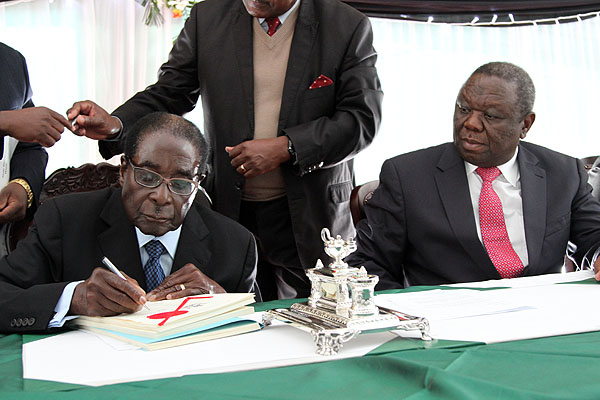
Welcome to the Know Your Rights column.This column’s aim is to demystify the fundamental rights found in our country’s Constitution and legislation and to show how these rights apply to everyday life thereby promoting Constitutionalism in Zimbabwe. By Kuda Hove
May 22 2013 saw the introduction of Zimbabwe’s current Constitution. This Constitution replaced the old Constitution sometimes referred to as the Lancaster House Constitution which was amended 19 times during the course of its 33 year lifetime. These amendments being a reflection of the changing political and legal tides happening in Zimbabwe since the signing of the Lancaster House agreement in 1979.
What significant changes were brought by the 2013 Constitution and what was their relevance to the average Zimbabwean? This Constitution is more democratic and one major change meant to benefit the citizen was the expansion of the Declaration of Rights that was found in the 1980 Constitution.
The Declaration or Bill of Rights as it is sometimes also referred to, is embodied in Chapter 4 of the current Constitution. This Chapter is a formal declaration or outline of the legal and civil rights that are accorded to all citizens and residents (where applicable) of our State by virtue of them being humans (and in some instances juristic persons like companies).
The Bill of rights is the cornerstone of any democratic State, it serves as a measure to protect the citizen from arbitrary abuse of power by the State. It is also a major source for rights since the rights protected in the Bill of Rights are justiciable meaning that an individual can approach the courts seeking the implementation, protection or promotion of those rights.
Chapter 4 spans 43 Sections that will be examined more closely over the next couple of articles, for this article it will suffice to look at the Bill of Rights broadly and holistically. The Bill of Rights in the old Constitution mainly guaranteed civil and political rights, whereas the current Bill of Rights guarantees several types of rights that can be roughly divided into three categories namely;
• Civil and Political rights which deal with the citi zen’s participation in how the State is run, an example is the right to vote. Political rights aim at strengthening the connection between the citizen and the State; • Social and Economic rights deal with the provision of welfare and the quality of a person’s life. An example is the right to shelter; • Cultural rights guarantee the spiritual and cultural development of every human. Cultural rights include the right of each person to participate in cultural life and the right to use one’s native language. These categories are not rigid as these rights are interrelated and one cannot enjoy one class of rights without the other. Collectively these rights are meant to allow every person to reach their fullest potential while at the same time living harmoniously with other people. It is important for citizens to take it upon themselves to familiarise themselves with the Bill of Rights for their own protection and simply because they cannot claim that which they do not know.
Kuda Hove is a Legal Officer at Veritas Zimbabwe. He writes in his personal capacity. Email: [email protected]











